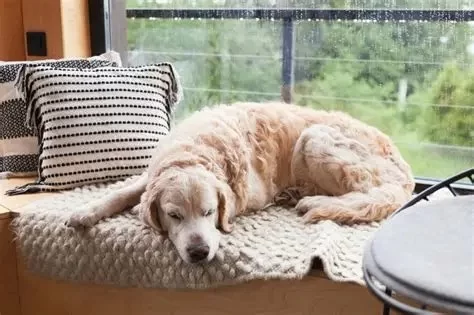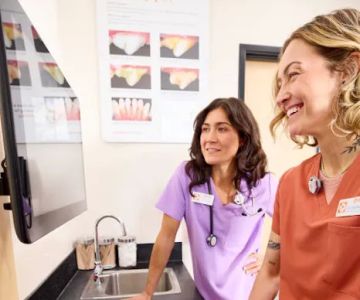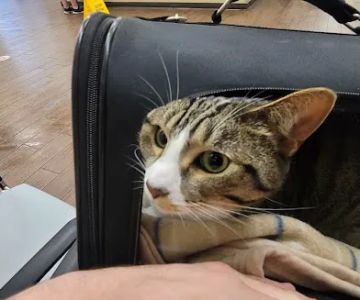How-to-Help-Pets-with-GI-Surgery-Recover-Overview - understanding-gastrointestinal-surgery-in-pets
How-to-Help-Pets-with-GI-Surgery-Recover-Post-Surgery-Care - pet-care-after-GI-surgery
How-to-Help-Pets-with-GI-Surgery-Recover-Feeding-and-Nutrition - nutrition-for-pets-after-surgery
How-to-Help-Pets-with-GI-Surgery-Recover-Watch-for-Complications - signs-of-complications-after-GI-surgery
How-to-Help-Pets-with-GI-Surgery-Recover-Follow-Up-Care - follow-up-visits-for-pets-after-surgery
1. Understanding Gastrointestinal Surgery in Pets
Gastrointestinal (GI) surgery in pets, such as dogs and cats, is often necessary for treating a variety of digestive system issues, from blockages and foreign body ingestion to tumors and diseases like Inflammatory Bowel Disease (IBD). While these surgeries are generally safe, the recovery process can be delicate and requires special attention to ensure your pet heals properly and avoids complications.
As a pet owner, it’s essential to understand the importance of proper post-surgery care. Knowing what to expect during recovery and how to support your pet can make a significant difference in their healing journey. In this article, we’ll provide valuable insights into how to help pets recover after GI surgery, including post-surgery care, feeding, spotting complications, and the importance of follow-up visits to ensure the best possible outcome for your furry friend.
2. Post-Surgery Care for Pets After GI Surgery
After your pet undergoes gastrointestinal surgery, the recovery process begins. It’s important to monitor your pet closely during this time, as the initial post-surgery period can be stressful for both you and your pet. Proper post-surgery care will help speed up recovery, prevent infections, and reduce discomfort.
2.1 Creating a Comfortable and Quiet Recovery Space
One of the most important aspects of recovery is ensuring your pet has a comfortable and quiet space to rest. After surgery, pets may feel groggy or disoriented from anesthesia, so a calm environment will help them feel safe. Set up a quiet, soft bed in a low-traffic area of the house, away from the usual household activity. Make sure they are in a place where they won’t be disturbed by other pets or children, and provide easy access to food and water without the need for them to move too much.
2.2 Keeping Your Pet’s Activity Level Controlled
During the early stages of recovery, it’s crucial to limit your pet’s physical activity to avoid putting stress on the healing area. Pets may feel energetic once the anesthesia wears off, but excessive movement could interfere with healing or cause strain on the incision. Follow your vet’s advice about restricting exercise, and be sure to prevent your pet from jumping or running until they’re fully healed. Short, controlled walks may be appropriate as they begin to regain strength.
2.3 Monitoring the Surgical Site
Check the incision site daily for signs of infection or complications. Look for redness, swelling, discharge, or an unusual odor, which could indicate infection. Keep the site clean and dry, and prevent your pet from licking or chewing at the incision, which could cause irritation or infection. Your veterinarian may recommend using an Elizabethan collar (E-collar) or recovery suit to prevent your pet from reaching the surgical site.
3. Feeding and Nutrition After GI Surgery
Proper nutrition is a key factor in your pet’s recovery from GI surgery. After surgery, pets may have a decreased appetite or find it difficult to eat due to discomfort. Ensuring they receive the right type of food and maintaining hydration is essential for healing and regaining strength.
3.1 Gradual Introduction of Food
After GI surgery, your vet may recommend starting with a bland, easily digestible diet to give your pet’s digestive system time to heal. This may include boiled chicken and rice or a special prescription diet designed for sensitive stomachs. Start with small amounts of food and gradually increase the portions as your pet tolerates it. Avoid giving your pet their regular food right away, as it may be too rich or difficult for their stomach to process during recovery.
3.2 Monitoring Hydration
It’s essential to ensure your pet stays well-hydrated during their recovery. Dehydration can slow healing and cause additional complications. Make sure fresh water is always available, and consider offering ice chips or an electrolyte solution if your pet isn’t drinking enough. If your pet refuses to drink, contact your vet for advice on rehydration methods, such as administering fluids under the skin (subcutaneous fluids).
3.3 Appetite Stimulation
If your pet is reluctant to eat, try offering food that’s more appealing, such as warm, wet food or boiled chicken. In some cases, your vet may prescribe appetite stimulants to help encourage eating. If your pet continues to refuse food for more than 24 hours, or if they show signs of nausea or vomiting, consult your veterinarian promptly.
4. Watch for Complications During Recovery
While most pets recover from GI surgery without issue, it’s important to be vigilant for signs of complications. Understanding the potential risks can help you seek timely medical attention if necessary, improving the chances of a successful recovery.
4.1 Signs of Infection
If the incision site becomes swollen, red, or starts to leak pus, this could indicate an infection. Other signs of infection include fever, lethargy, and a decrease in appetite. If you notice any of these symptoms, contact your veterinarian immediately for further evaluation and treatment.
4.2 Vomiting and Diarrhea
Some vomiting and mild diarrhea are common after GI surgery, but persistent vomiting or diarrhea could signal a problem. If your pet continues to experience these symptoms after the first few days of recovery, especially if they’re accompanied by lethargy or a lack of appetite, call your vet for advice. These could be signs of complications such as an obstruction or infection.
4.3 Difficulty Passing Stool
If your pet has difficulty passing stool or appears constipated after surgery, this could indicate gastrointestinal motility issues. Make sure your pet has access to plenty of water and follow your vet’s recommendations for aiding digestion and promoting normal bowel movements. In some cases, additional medications may be needed to support gastrointestinal function.
5. Follow-Up Care and Vet Visits
Follow-up visits with your veterinarian are crucial to ensure your pet’s recovery progresses as expected. These visits will typically take place one to two weeks after surgery, at which point your vet will check the incision site, assess your pet’s general health, and discuss any concerns you may have. Regular follow-up appointments also give your vet the opportunity to adjust medications or dietary recommendations as needed.
5.1 Regular Check-Ups
Even after your pet has been cleared for normal activity, routine check-ups are important to monitor their ongoing health. Your vet will want to ensure that the surgery site is healing well and that your pet is recovering without complications. Regular visits can also catch any long-term issues early, allowing for quick intervention if needed.
5.2 Long-Term Care and Lifestyle Changes
After your pet has recovered from GI surgery, your vet may recommend long-term care strategies to ensure that they continue to thrive. This may include adjustments to their diet, exercise routine, or medications to prevent further gastrointestinal issues. By following your vet’s advice, you can help ensure your pet stays healthy and happy long after the surgery.
Helping your pet recover from GI surgery takes patience, careful attention, and proper care. By monitoring their progress, ensuring they receive the right nutrition, and staying vigilant for any signs of complications, you can provide the best possible support for their recovery. For more guidance on post-surgery care or to learn more about how to support your pet’s health, visit Hidden Brook Veterinary for expert advice and recommendations tailored to your pet’s needs.












